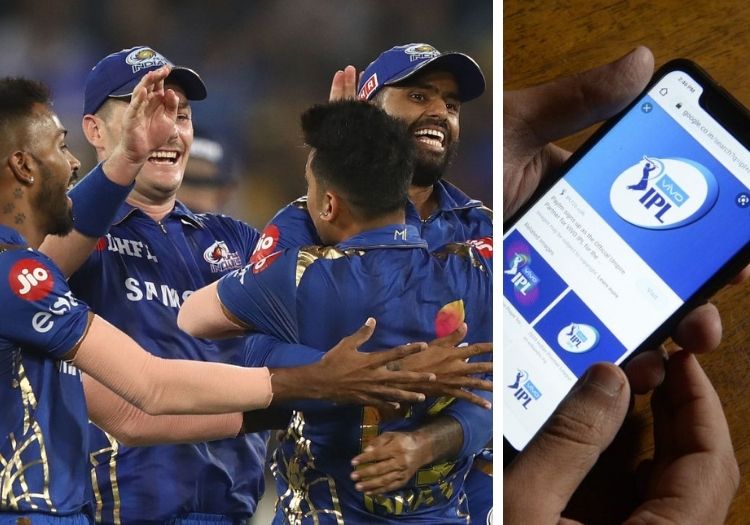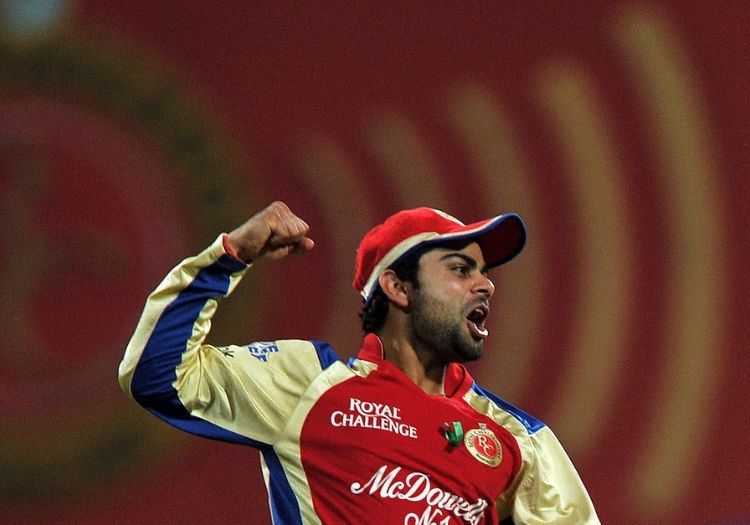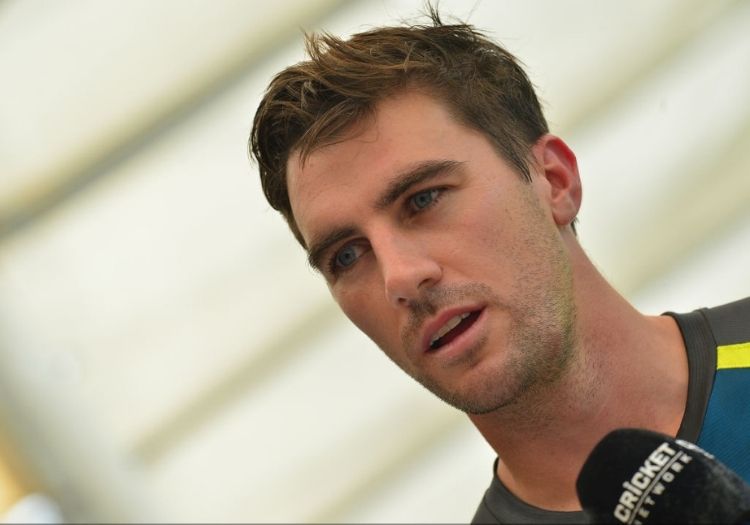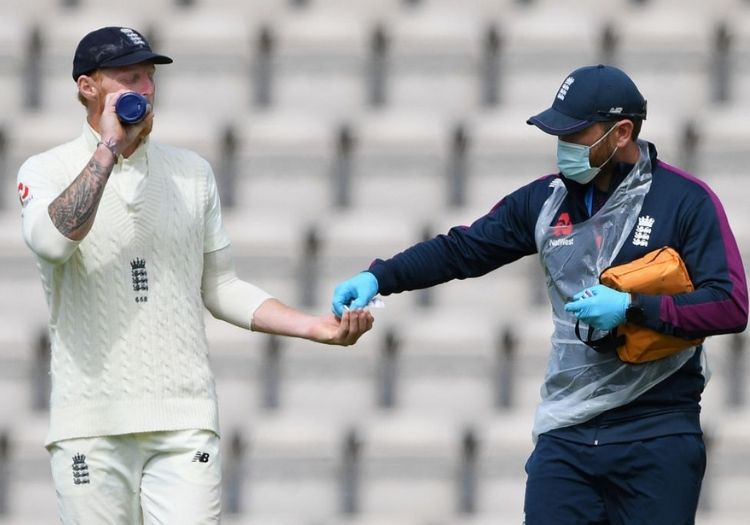NICK HOWSON: The 13th edition of franchise cricket's premier event returns to the United Arab Emirates amid a combination of trepidation and excitement

After hosting 20 matches in 2014, the IPL is back in the United Arab Emirates. But once again, not out of design but necessity.
Six years ago it was the Indian elections which forced the eight-team competition to relocate. Now COVID-19 has dictated terms.
Sri Lanka submitted a proposal to stage the matches, but in the end, a return to more familiar surroundings in the form of the UAE was agreed.
Any cricket match in front of empty stadiums feels and hollow. In the UAE that is often par for the course, with grounds in Dubai, Abu Dhabi and Sharjah regularly missing spectators. Amid the abnormal, there will at least be one familiar sight.
If we're likely to miss fans at any cricket competition until they finally return, it is during the IPL. They are the life, soul and purpose of this entire event. Without them, there is an argument this showcase is a pointless exercise.
How it impacts the players, particularly those for whom performing behind closed doors will be a relatively new experience, is an intriguing prospect. The IPL is often billed as the highest quality franchise competition around, but we're about to find out how much of that is elevated by fans.
Crowd noise has been used for sporting events around the world to make the viewer feel comfortable, but murmurs at the Sheikh Zayed or Dubai International Cricket Stadiums will feel like an insult. The texture will be entirely different, but the supporter should be allowed to work it out for themselves.

Virat Kohli has enjoyed limited success with RCB since becoming captain
“Virat is the Indian captain. And has the highest fan-followers. We all love Virat and love to be associated with Virat. As RCB, as an RCB owner, we are very, very proud that Virat is associated with us.”
When Royal Challengers Bangalore owner Sanjeev Churiwala issued a defence of the captain ahead of the 13th edition of the IPL, it sounded as though he was trying to convince himself as much as anyone else.
Churiwala has at least confirmed one thing: Kohli isn't the captain solely because he's the best man for the job. No IPL title in their history, including since Kohli took the reigns in 2013, he has lost 55 of his 110 in charge.
Last season wasn't statistically RCB's worst performance, but it was probably the nadir of their existence. They finished bottom of the group for the second time in three years, outside the top four for the fifth time since Kohli took over and lost their opening six matches in a row.
It isn't that replacing Kohli will be an instant solution, it is more that there isn't much evidence his retention has proved fruitful. Unless something dramatically changes, Kohli has no plans to leave RCB and a change in leadership is unlikely to change that.
And it isn't like there aren't viable options. Australia's white-ball skipper Aaron Finch, former South Africa captain AB de Villiers and even Moeen Ali are all waiting in the wings. While none of the trio can ever fill the void of Kohli commercially, they're hardly a major step down either.
Scrutiny of Kohli's captaincy accentuated during last season and a failure to arrest their run of form will only see that dialogue increase. Once again, RCB's squad looks somewhat unbalanced, without an outstanding allrounder and a seam attack led by an injury-prone Dale Steyn (37) and Chris Morris (33). Similar problems await.

Pat Cummins became the most expensive overseas signing in IPl history last December
On the road to the T20 World Cup in India next year, this could be a key juncture. No player can be assured of much cricket before that showcase and as far as exposure to spinning conditions is concerned, this might be their last opportunity for a tune-up.
Eoin Morgan's England will travel to the sub-continent next year tasked with becoming the first nation to hold both men's white-ball World Cups simultaneously. They return to defend their 50-over title in 2023.
The skipper has specifically asked for slow pitches from groundstaff in England over the next few years in an effort to ensure they are sufficiently prepared. But this competition represents an opportunity for some real-time experience.
Granted, this isn't Bangalore, Delhi or Mumbai, but it's as good an opportunity as ever against international-quality line-ups to test themselves.
Many of the squad you would expect to travel to South Asia next October. Morgan and Tom Banton are with Kolkata Knight Riders, Rajasthan Royals have Tom Curran, Jofra Archer and Jos Buttler, Moeen Ali will play for Royal Challengers Bangalore, Jonny Bairstow is back with Sunrisers Hyderabad and Kings XI Punjab are boosted by the presence of Chris Jordan.
Some of those players are due back in the UAE to face India and then to Sri Lanka during the first few months of next year, before another edition of the IPL, so there will be other opportunities to ensure they are ready to perform. But the quality of the opponent will as close to a World Cup as you're likely to get and will act as a major barometer.
It seems like a lifetime ago, but back in December, the Australia seamer became the most expensive overseas player in IPL history, as Kolkata Knight Riders paid £3.17 million for his services for the 2020 edition.
The 27-year-old doesn't have an imperious domestic T20 record (97 wickets at 24.43, 7.73 economy rate) and though he can be handy with the bat, he is mainly in for his bowling.
The addition does come with a degree of risk. Cummins might be stronger now than ever and had six months out of the sport due to the coronavirus pandemic, but he has a history of injuries. His 2018 campaign was ended before it began due to a back injury.
Cummins' record in the UAE is fairly decent, with five wickets at 13.20, going at a run-a-ball. But there are other ways he can make an impact. As Australia's vice-captain, he'll bring an extra voice alongside Dinesh Karthik and Eoin Morgan. And it appears likely that he and Lockie Ferguson will duel for the title as the team's quickest seamer.
Much-anticipated signings have enjoyed varied success in the IPL down the years (think Yuvraj Singh and Mashrafe Mortaza) so there is no guarantee Cummins will reproduce the goods. Whether he likes it or not, he will be heavily under the microscope.

Life into the bio-secure bubble will be a new experience for many players
Of the bio-secure bubbles formed around the world, the one which is attempting to keep the Indian Premier League in check is perhaps the most ambitious.
Instead of being situated in one venue, matches are taking place in Abu Dhabi, Sharjah and Dubai. Training is spread out also and not restricted to venues only.
While players will be in a bubble, they will be joined by their families. However, they are not permitted to travel to matches or training and must undergo the same COVID-19 testing process as the players.
Suresh Raina has already withdrawn from the tournament over concerns regarding the safety of his family, while Harbhajan Singh will not play due to “personal reasons”.
Players already in the UAE had to test negative for coronavirus five times before being allowed to start training. Thereafter, players will be tested every five days during the tournament, with those who return a positive result automatically placed into a 14-day quarantine.
The BCCI have asked the eight franchises to take control of their own testing programme and protocols. While that makes the organisation far easier, it means a different interpretation of the rules. Chennai Super Kings did not practise social distancing, failed to self-isolate upon coming together and refrained from wearing PPE. They returned 13 positive tests.
After the simplicity of the set-up in England and the West Indies, this is the most grandiose operation we have seen in the post-COVID era in international sport. The number of positive tests reported so far could be seen of both the system working, and the major flaws that lie within. This is the biggest sporting operation of its type since the action got underway, and there will be plenty of interested parties watching intently for any sign of cracks appearing.
It is also worth considering how the restrictions will impact on the mental state of the players. Unless they have been in England or the Caribbean Premier League, this will be a new and alien experience to them. Even with their loved ones close by, they'll be some unique surroundings for them to all deal with.
For unrivalled coverage of the county season, subscribe to The Cricketer and receive 3 issues for £5